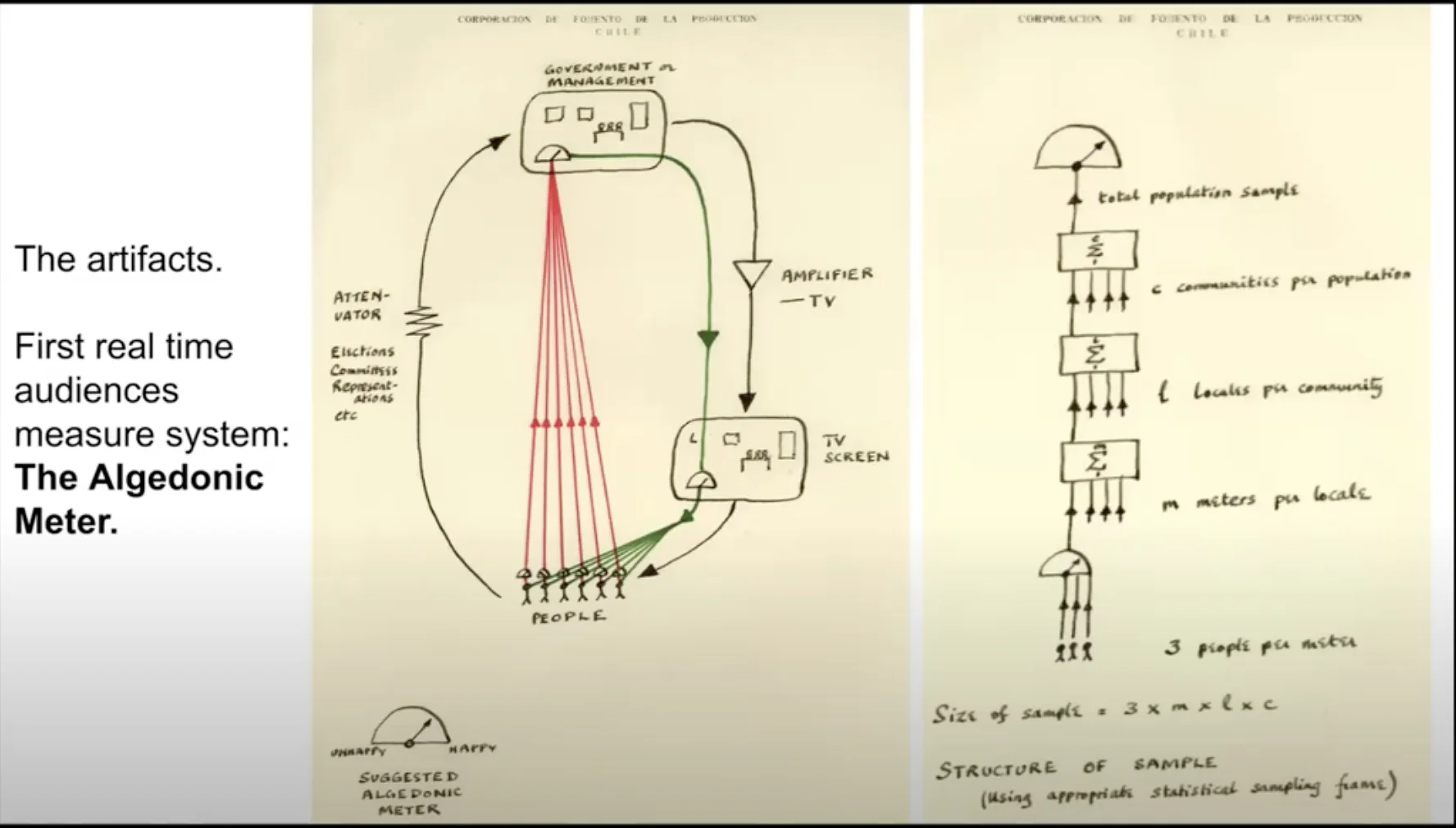
Sketches from Stafford Beer’s legacy
Stafford Beer stands out for his role as the first developer of models for the diagnosis and intervention of human organizations within industry and the public sector. However his work was greater than that. The goal of the present webinar is to develop the hypothesis that the legacy of Stafford Beer raises the first intuitions related to the foundations of what today is called the “Fourth Industrial Revolution”, the fundamentals of our contemporary world.
To achieve this, let us first define precisely an industrial revolution. What are its elements and layers? How its evolution is characterized? Then, we will take Stafford Beer’s experience in the Cybersyn project, as a first attempt to promote a popular national cyberculture, in particular focusing on Cyberfolk.
Many of Beer and his team’s reflections on the effective incorporation of people into the project considered prototypes for measuring audiences in real time. They took into consideration content moderation in mass media and cultural products for the promotion of a new relationship with technology. These were articulated in the “5 principles for good government”, a guide designed by Beer that consisted of the description of five elementary situations in which technology served to enable agile social articulation based on the common good.
This view of the common good is especially critical in the main political and sociocultural dilemmas that form part of todays debates regarding the future of ongoing Fourth Industrial Revolution. Indeed, the concept of cyberculture remains anchored in a view based on a narrow accelerationist notion of the contemporary social order. This view conceive technological development as a fixed line in the speed of change and not as its direction. This has led us to think that it is more likely that machines will become conscious and dominate us than that we can develop a concept and technological practice of social control based on collaboration.
Speaker Bio
Rodrigo Fernández Albornoz is a Senior Data Scientist at Globant – Data & AI Studio, Academic Coordinator and Professor of the Data Science Diploma at University of Santiago, Faculty of Management and Economics, and collaborator of Management Analytics & Data Science Research Center (MAD-Sc) at Technic University Federico Santa María, Department of Economics. Specialist in management and team development for data intensive projects, statistical modelling and natural language processing in the industry, public sector and academic research.
Independent researcher and professor in Philosophy and History of Technology, in particular the industrial revolution processes, information theory and technologies, and experimental movements and vanguards in the field of poetic and esthetics of music. Since 2021 is funding of “Banca de Helechos” (@bancadehelechos), a Chilean publishing project of contemporary poetry and collaborates with the Foundation for the Interdisciplinary Development of Science, Technology and the Arts (DICTA), a NGO dedicated with a special focus on interdisciplinary, with the purpose of generating cultural media from projects related to science, technology and arts (www.dicta.cl)
